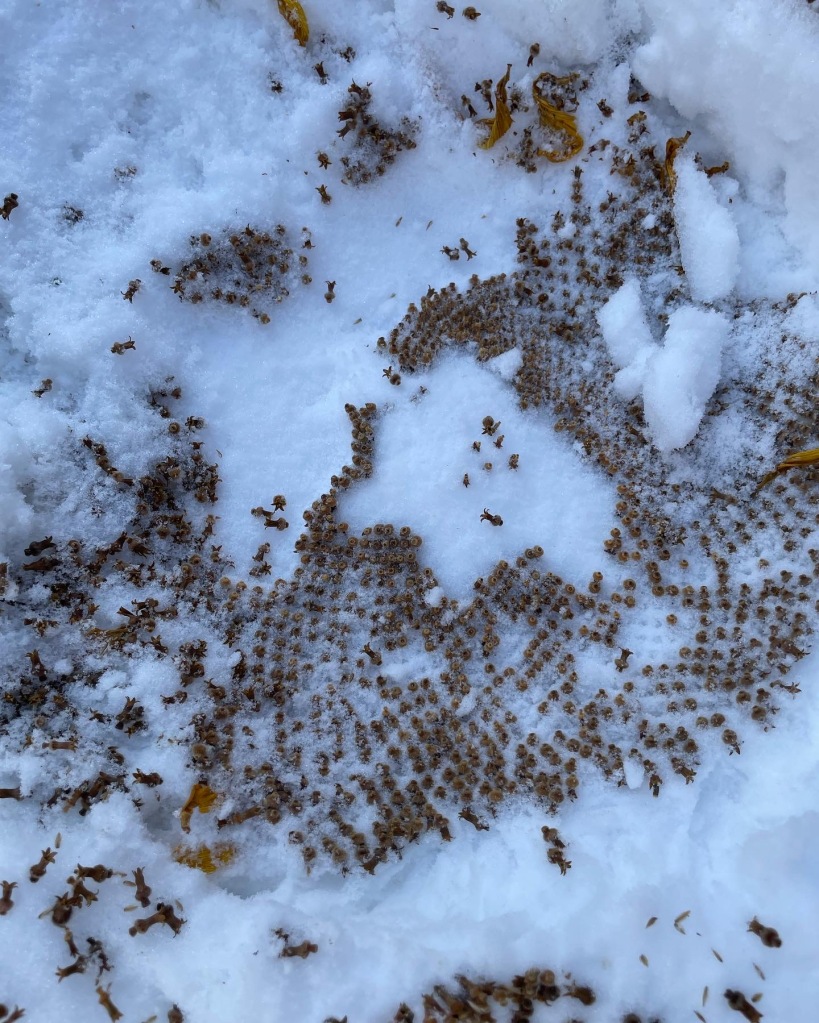First, I must commend the bio 😉 Unlike the vast majority of them these days, it not only notes background, publications and awards but states: “Alice is also known as a community builder.” If only all poets felt that undertaking acts of service for their literary community was an integral part of their writerly role, whether as reading or podcast hosts, presenters of prizes or grants, creators of venues or as book reviewers, then what a flourishing environment we would have in which to pursue our art form. Art does not inhabit vacuums in which individuals merely seek to publish and promote their own work; it only functions fully when it receives a depth of critique and the opportunity to thrive through performative avenues. So thanks, Alice, for your years of care. Most importantly, however, is always the quality of writing behind anything a writer otherwise accomplishes and Major’s poems are consistently strong, unique, well-researched and aurally impeccable.
I’m not a big fan of the cover, and particularly the somewhat chopped-off typography of the title, but it’s what’s inside that really counts, and Major doesn’t disappoint, especially in the book’s opener of a long poem, the nine-part Anglo Saxon-inflected “a fate for fire.” Anglo-Saxon verse represents the oldest prosody, a form from the time of Beowulf, in which one accents four syllables per line and makes heavy use of alliteration. Major is a research-grounded poet and Knife on Snow scores an ear’s scholarship as well as a mind’s absorption in both Norse sagas, and a range of earthly and later, planetary sciences. Sometimes a book is read at an utterly apropos time and I read these pieces not long after I heard I would be going to an artist’s residency in Iceland this Fall, as well as at the beginning of fire season in Alberta. Thus, everything in this initial piece spoke to me, from the evacuations caused by the “Hell-mile, hellscape -/vehicles draining through a downpour of flame” to the landing in Keflavik where “the birds’ road roars with metal,/…And carbon, of course:/jets’ shed guano joining the air.” It’s a real challenge to make the Norse gods fresh and Major accomplishes this feat by weaving them into our own saga of flame and loss and attempts at transcendence, the female speaker feeling “like the fugitive /in the skald’s tale.”

The two other long-ish pieces in the book, the titular poem and “The last Ediacarans” also represent Major at her strongest, that rare ability to fuse ancient knowledge (respectively the soldier-historian Marcellinus and mysterious fossils) with human feeling. In the first, Major’s entree is the literal implement/weapon tossed in her backyard, “the metal wedge/stamped on snow. /My small, staked territory,” while the other is research that leads to such revelations on mortality and endurance like: “From the torrent pouring on without me/something will survive. A world will last./And sometimes, in the stone-slow change to fossil/our soft parts wear away but leave a cast.” Beautifully poised couplets with a pang of end rhyme. And yet another triumph in this collection are the End Times poems that scatter throughout like dark seeds of recognition: of aging’s “plate tectonics” (1), of a dying cat’s “impossible forgiveness” (2), of the death of a season (apart from the cliche of “petals/shedding like confetti”) in the lines “your hands full of days/when the light never stopped,/so complete with scents and bees” (6).
Occasionally, Major gets a bit cutesy-pie, ala Don McKay, when she writes about the planets in the last lengthier sequence, this time of haibuns, as when Venus is getting plastic surgery or the Comet Catalina “cruises past us like a passenger staring out/the window on a coach tour,” or she falls a tad flat at the end of some lyrics, especially “Be at peace,” her recollection of her mother’s admonition that ends the same way it begins with the overly-obvious statement: “Oh, let us be/at peace,” but mostly Major is accessible without dumbing her vision down, and her ear keeps to an organic unfolding that intrigues, satisfies and yet keeps this reader yearning to re-read. I think I’ll take this collection to Iceland with me in October and let its musics meet the land of the Aesirs and see what echoes forth 🙂
Thank you. This review makes me want to buy the book and read the poems immediately.
And examine my own poems more closely as I edit them again.
LikeLiked by 1 person
Also, how fabulous that you’re going to Iceland to write! Can’t wait to read what you write there.
LikeLiked by 1 person